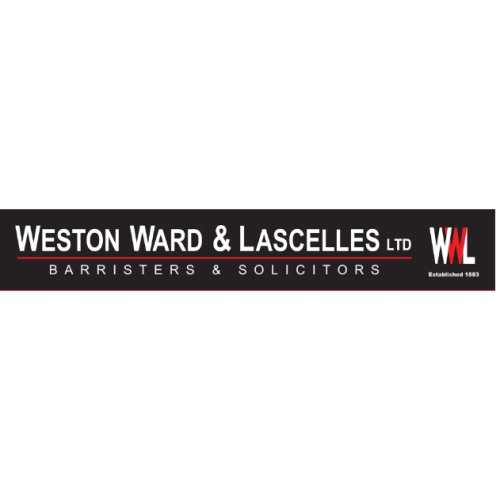Best Corporate & Commercial Lawyers in New Zealand
Share your needs with us, get contacted by law firms.
Free. Takes 2 min.
Or refine your search by selecting a city:
List of the best lawyers in New Zealand
About Corporate & Commercial Law in New Zealand
Corporate & Commercial law in New Zealand covers the legal rules, regulations, and practices governing businesses, companies, and commercial transactions. This field addresses the formation of companies, legal obligations of directors and shareholders, mergers and acquisitions, business contracts, buying and selling businesses, franchising, insolvency, intellectual property, and compliance with government regulations. The New Zealand legal landscape for businesses is dynamic, designed to support both local and international enterprises while ensuring fair trade, transparency, and protection for all parties involved.
Why You May Need a Lawyer
There are various situations within corporate and commercial matters where obtaining legal advice is essential. Common scenarios include:
- Starting a new business or company
- Buying or selling a business or shares
- Drafting or reviewing contracts and agreements
- Restructuring an existing business or entering joint ventures
- Dealing with disputes between shareholders, directors, or business partners
- Mergers, acquisitions, and business sales
- Understanding regulatory compliance requirements
- Facing insolvency or bankruptcy issues
- Intellectual property protection and licensing
- Franchising arrangements
- Raising business finance or managing debt
A qualified lawyer can help protect your interests, ensure compliance with laws, and help resolve disputes efficiently.
Local Laws Overview
Corporate & Commercial law in New Zealand is governed by several key statutes and regulations, as well as common law principles. Some of the most relevant laws include:
- Companies Act 1993: Sets out the rules for company incorporation, operation, duties of directors, and shareholder rights.
- Fair Trading Act 1986: Protects consumers and businesses from misleading and deceptive conduct in trade.
- Commerce Act 1986: Regulates anti-competitive behavior, including cartels and abuse of market power.
- Contract and Commercial Law Act 2017: Governs contracts, electronic transactions, and business dealings.
- Insolvency laws: Address situations where businesses are unable to pay their debts, including liquidation and receivership processes.
- Intellectual Property laws: Include the Trade Marks Act 2002, Copyright Act 1994, and Patents Act 2013 providing protection for business innovations and branding.
- Overseas Investment Act 2005: Covers the rules for foreign investment and ownership in New Zealand businesses.
- Privacy Act 2020: Controls how businesses must manage personal information and data.
Businesses must also be aware of industry-specific regulations and any obligations under employment laws if they have staff.
Frequently Asked Questions
What is the process to register a company in New Zealand?
To register a company, you must apply online through the Companies Office, choose a unique company name, provide director details, and register a physical address in New Zealand. After submission, you receive a Certificate of Incorporation.
What are the duties of company directors in New Zealand?
Directors must act in good faith, in the best interests of the company, avoid conflicts of interest, and comply with company law. They are responsible for the financial and legal obligations of the company.
Do I need a lawyer to draft a business contract?
While not legally required, it is highly recommended to have a lawyer draft or review business contracts to ensure they are clear, enforceable, and offer adequate protection for your interests.
How are shareholder disputes resolved?
Shareholder disputes may be resolved through negotiation, mediation, or going to court if necessary. Company constitutions and shareholder agreements often have dispute resolution procedures in place.
What should I consider when buying or selling a business?
Key considerations include due diligence, valuation, transfer of assets, handling of existing contracts and debts, and ensuring compliance with legal requirements for sale and purchase agreements.
How do mergers and acquisitions work in New Zealand?
Mergers and acquisitions typically involve negotiation, due diligence, agreement on terms, regulatory approval (if needed), and integration of businesses. Legal advisors are essential to manage risks and compliance.
Which laws apply to franchising agreements?
Franchising is regulated by contract law, the Fair Trading Act, and intellectual property laws. Both franchisors and franchisees should seek legal advice about their rights and obligations.
What happens if a company becomes insolvent?
When a company cannot pay its debts, it may enter liquidation, receivership, or voluntary administration. Insolvency law provides procedures for creditors to recover debts and for orderly winding up of the company.
How can businesses protect their intellectual property?
Registration of trade marks, patents, and copyrights protects your intellectual property. Legal advice can help you with the application process and with contracts to secure your rights in business deals.
What compliance requirements must New Zealand businesses meet?
Compliance includes keeping accurate company records, filing annual returns, meeting tax obligations, observing privacy rules, and following health and safety regulations. Failure to comply may result in penalties, fines, or prosecution.
Additional Resources
People seeking information or legal advice about Corporate & Commercial matters in New Zealand can refer to the following resources:
- New Zealand Companies Office: Administers company registrations and provides guidance on compliance for businesses
- Commerce Commission: Regulates and enforces laws relating to competition and fair trading
- Intellectual Property Office of New Zealand (IPONZ): Manages registration of patents, trade marks, and designs
- Ministry of Business, Innovation & Employment (MBIE): Provides extensive resources for business owners about regulations and compliance
- New Zealand Law Society: Refers to qualified lawyers specializing in Corporate & Commercial law
- Citizens Advice Bureau: Offers free general advice and points to relevant agencies
Next Steps
If you need legal assistance in Corporate & Commercial matters, consider the following steps:
- Identify the specific issue or transaction and gather relevant documents.
- Consult trusted resources such as the Companies Office or MBIE to understand your obligations.
- Contact a qualified Corporate & Commercial lawyer for tailored advice. The New Zealand Law Society provides a directory to help you find a specialist.
- Prepare questions and background information before your initial consultation.
- Act promptly to ensure compliance with deadlines and to avoid complications or penalties.
Legal advice at an early stage often saves time, money, and trouble. Taking action now can protect your interests and help your business succeed in New Zealand's corporate environment.
Lawzana helps you find the best lawyers and law firms in New Zealand through a curated and pre-screened list of qualified legal professionals. Our platform offers rankings and detailed profiles of attorneys and law firms, allowing you to compare based on practice areas, including Corporate & Commercial, experience, and client feedback.
Each profile includes a description of the firm's areas of practice, client reviews, team members and partners, year of establishment, spoken languages, office locations, contact information, social media presence, and any published articles or resources. Most firms on our platform speak English and are experienced in both local and international legal matters.
Get a quote from top-rated law firms in New Zealand — quickly, securely, and without unnecessary hassle.
Disclaimer:
The information provided on this page is for general informational purposes only and does not constitute legal advice. While we strive to ensure the accuracy and relevance of the content, legal information may change over time, and interpretations of the law can vary. You should always consult with a qualified legal professional for advice specific to your situation.
We disclaim all liability for actions taken or not taken based on the content of this page. If you believe any information is incorrect or outdated, please contact us, and we will review and update it where appropriate.
Browse corporate & commercial law firms by service in New Zealand
New Zealand Attorneys in related practice areas.
Browse corporate & commercial law firms by city in New Zealand
Refine your search by selecting a city.















